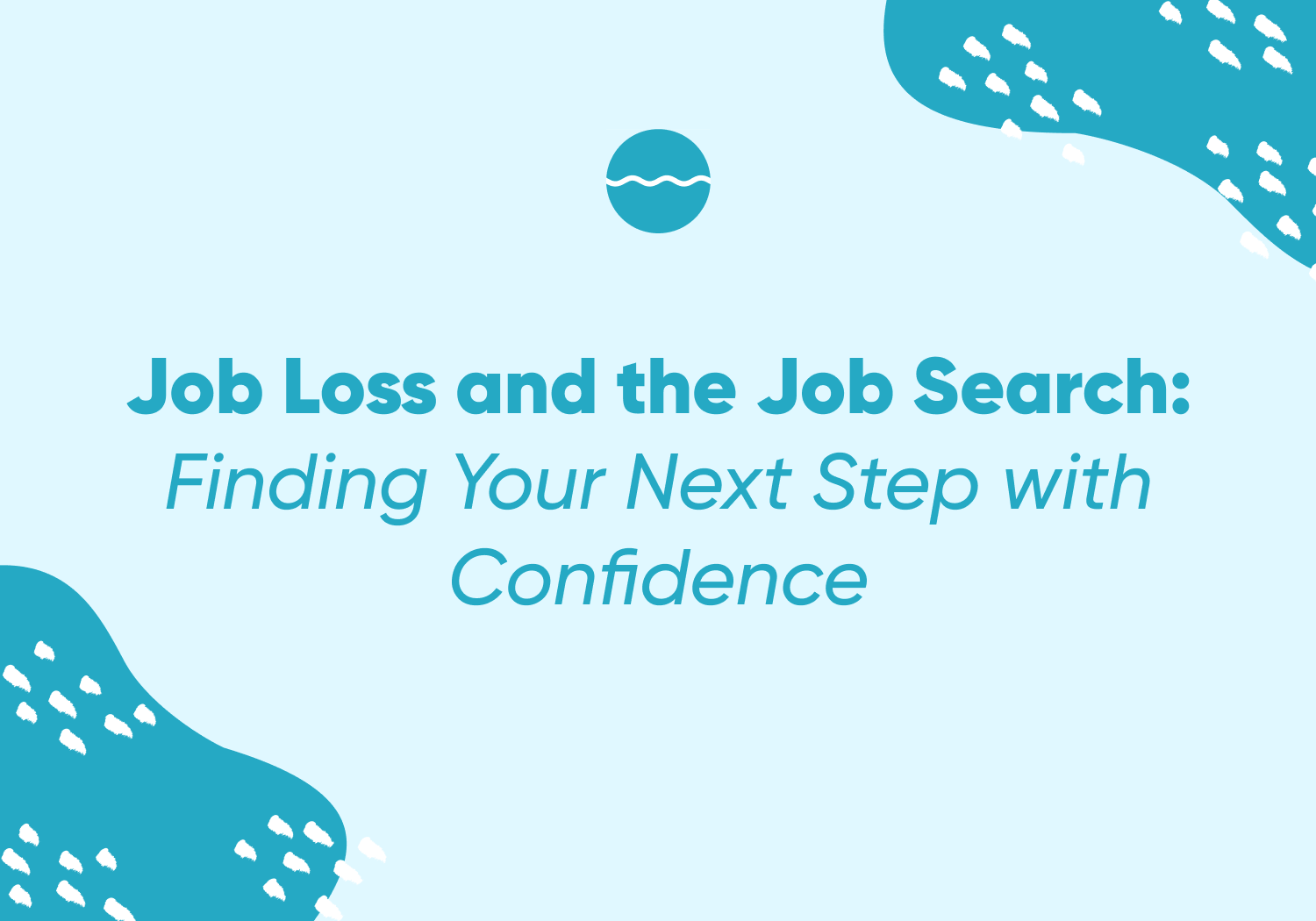Job Loss and the Job Search

Losing a job or starting a search for a new one can feel overwhelming. It’s a time of change that often brings stress, uncertainty, and even burnout. But with the right mindset, support, and strategy, this transition can become an opportunity for growth and a fresh start.
How to Resign Gracefully
Leaving a job voluntarily can be less stressful if you prepare mentally and emotionally. Here are some steps to support yourself during the transition:
Self-awareness: Reflect on your values, motivations, and long-term goals. What kind of work truly excites you?
Planning: Map out your next steps. A clear plan gives you focus and a sense of control.
Positive mindset: See your resignation not as a failure but as a chance to grow and start something new.
Support network: Share your plans and feelings with friends, family, or a therapist. Talking helps reduce stress and isolation.
Stress management: Practice calming techniques — deep breathing, meditation, yoga — to keep balance.
Embrace rejection: Not every application will succeed. Each “no” is a lesson that gets you closer to a “yes.”
Celebrate small wins: Track your progress — from sending applications to completing interviews. Small victories build motivation.
Maintain balance: Don’t let the job search consume you. Include rest and leisure in your routine.
If You’ve Been Let Go
Job loss can shake confidence and bring emotional challenges. Common struggles include:
Emotional barriers — anxiety, sadness, or low self-esteem
Doubts about self-worth — believing you’re not “good enough”
Isolation — losing workplace connections and professional networks
Dwelling on the past — focusing on mistakes instead of new opportunities
Ineffective search strategies — applying without direction or preparation
Fear of the unknown — career change often feels risky
These feelings are natural. Reaching out to a mental health professional can help you process emotions and move forward with clarity and resilience.
How to Find a Job You’ll Love
Landing the right role takes time and patience. These steps can help:
Clarify your values, skills, and interests.
Set realistic career goals and create an action plan.
Stay open to different industries and roles.
Expand your network — attend events, join groups, and connect with colleagues.
Prepare thoroughly for interviews: research companies, practice answers, and ask thoughtful questions.
Seek feedback and support from mentors, family, or a therapist.
How Pleso Therapy Can Help
Pleso Therapy therapists can support you throughout the job search process. Here’s what you can expect:
Emotional support: Manage stress, frustration, and uncertainty.
Boosted self-esteem: Identify strengths and present them with confidence.
Career planning: Build a clear strategy to reach your goals.
Motivation and confidence: Learn techniques to stay focused and resilient.
Challenging self-doubt: Replace limiting beliefs with empowering ones.
Interview coaching: Practice realistic scenarios and strengthen communication skills.
Stress management: Build tools to stay calm and balanced.
At Pleso Therapy, process of therapy is flexible, confidential, and tailored to your needs. Together with a professional, you can turn the stress of job loss into an opportunity for growth — and move toward a role that feels meaningful and fulfilling.
